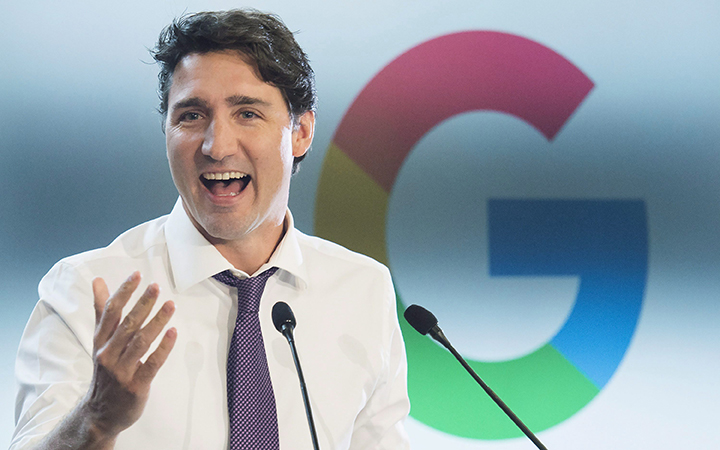Prime Minister Trudeau remains optimistic for the country’s economic challenges, but Canadians are feeling less than upbeat as two in 10 say they are “better off” than their parents, according to an Ipsos poll.

While speaking at the opening of Google’s new Canadian headquarters in Kitchener-Waterloo, Trudeau said that despite the “difficult times,” he is optimistic about the country’s future prospects.
“There are tremendous bright spots,” he told reporters Thursday.
READ MORE: Toronto stock market wraps up volatile week, dollar settles below 69 cents U.S.
But a new Ipsos poll, conducted exclusively for Global News, found that Canadians of all generations across the country are feeling anxious about the future.
Forty-five per cent of 18- to 34-year-olds believe they are in worse financial shape than their parents, while 49 per cent of 35- to 54-year-olds believe they are worse off. Thirty-six per cent of Canadians over the age of 55 believe the statement is true.
When looking at the polling data over the last 27 years Canadians are now more pessimistic about the financial stability of future generations and find it more difficult to make ends meet.
And they have good reason to be says, Darrell Bricker, CEO of Ipsos.
READ MORE: Bruised and battered: the loonie’s bumpy ride
“This is a big challenge for government, it’s a big challenge for business, it’s even a big challenge for educational institutions,” Bricker told Global News. “If people don’t feel they are going to be fulfilled in the way their parents were, are they going to go to school? Are they going to go to university and take the types of jobs that we need for the economy?

Get breaking National news
Anxiety of the country’s stormy economic times is affecting Canadians from all income brackets who say they are falling behind their parents as well.
Since 1992, the proportion of Canadians believing they are financially better off than their parents were at the same stage in life has fallen sharply:
- 54% of people earning less than $30,000 now feel worse off compared to 14 per cent in 1992.
- Of those earning between $30k and $60k 53 per cent feel worse off compared to to 22 per cent in 1992.
- In the $60k+ bracket, there was a decline of 37 percentage points from 63 per cent to 26 per cent.
“It’s shocking and disappointing but not particularly surprising,” said Hugh Mackenzie, research associate at the Canadian Centre for Policy Alternatives.
Mackenzie points to debt that has delayed Canadians’ ability to do everything from starting a family to buying a house.
“If the reference point is 1989, a typical university tuition was $800-$900 a year. Students might graduate with debt but it’s relatively low,” said Mackenzie. “In the 1990s tuition increased dramatically… and in professional degrees tuition increased really dramatically.”
According to data from Statistics Canada the average tuition rates have gone from around $2,179 in 1995 to $6,191 in 2015 almost double the rate of inflation.
Residents of Alberta are most likely to say the next generation will be worse off financially at 63%, up 21 points from 1989, followed closely by British Columbians at 59 per cent up 12 points from 1989.

Meanwhile, Quebecers at 43 per cent and Saskatchewan/Manitoba residents at 46 per cent, are least likely to say the next generation will be worse off financially. Ontario and Atlantic Canada residents were at 52 per cent and 51 per cent on respectively in believing the next generation will be worse off.
Frances Woolley, professor of economics at Carleton, says the results could simply show that some “generations do better than others. “
“The generation that hit in the 1950s and 1960s was a sweet time,” said Woolley. “That generation has done really well … and we are not experiencing that.”








Comments